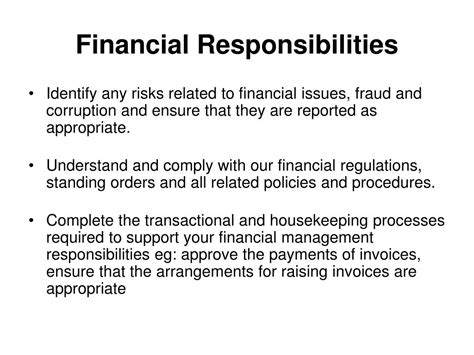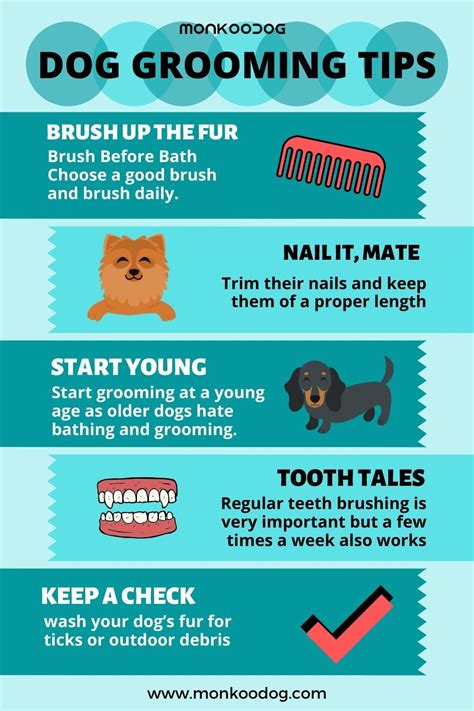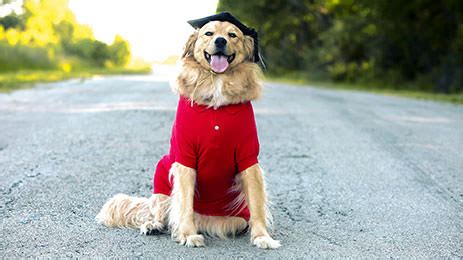Have you ever found yourself indulging in visions of having a loyal and affectionate four-legged friend by your side? The prospect of welcoming a furry companion into your life may be tantalizing, as it brings with it a myriad of enriching experiences. However, before embarking on this delightful journey, it is crucial to be equipped with a comprehensive understanding of the commitment and responsibilities that come with being a pet parent.
As you contemplate the possibility of embracing dog companionship, it is essential to realize that it entails much more than just the gratification of snuggles and playtime. Dogs, revered as man's best friend, are sentient beings with unique needs and desires. Therefore, ensuring their holistic well-being requires an informed and compassionate approach.
One pivotal aspect to consider is the breed that resonates with your lifestyle and personality. Each breed possesses distinct characteristics, varying in size, energy levels, and temperament. Whether you prefer an exuberant and playful partner for outdoor adventures or a gentle and calm companion for quiet moments, aligning the breed's traits to your preferences is a crucial step in building a harmonious and fulfilling relationship.
Moreover, when contemplating dog ownership, it is vital to evaluate your time availability and commitment to meet their physical, emotional, and cognitive needs. Dogs thrive on human interaction, requiring daily exercise, mental stimulation, and socialization. Consequently, dedicating quality time to engage in activities that enrich their lives becomes an indispensable responsibility for every pet parent.
By delving into the labyrinth of canine companionship armed with knowledge, you can provide optimal care, fostering an unbreakable bond built on trust, love, and understanding. This article delves deep into the intricacies of dog ownership, debunking myths, and equipping you with the invaluable insights needed to navigate your journey with an invaluable canine confidant. Embark on this enlightening adventure and unlock the secrets to becoming an exemplary dog owner!
Choosing the Perfect Canine Companion to Suit Your Lifestyle

When it comes to welcoming a furry friend into your home, finding the right match for your lifestyle is crucial. Each dog breed comes with unique characteristics and requirements, making it important to choose a dog that aligns with your daily routine and personal preferences. This section will provide you with valuable insight into selecting the perfect canine companion that will fit seamlessly into your life.
1. Determine your activity level:
- Are you an active individual who enjoys outdoor activities such as running, hiking, or biking?
- Or do you prefer a more relaxed, low-energy lifestyle?
- Consider the energy levels of different dog breeds to find a suitable match. High-energy breeds, such as Border Collies or Labrador Retrievers, thrive with an active owner who can provide them with regular exercise and mental stimulation. On the other hand, if you prefer a laid-back lifestyle, a breed like the Basset Hound or Bulldog may be a better fit.
2. Space availability:
- Do you live in a spacious house with a large backyard?
- Or do you reside in a smaller apartment with limited outdoor space?
- Consider the size of your living environment when choosing a dog. Some breeds, like Great Danes or Saint Bernards, require ample space to move around comfortably, while smaller breeds, such as Chihuahuas or French Bulldogs, can adapt well to apartment living.
3. Allergies and shedding:
- Do you or any of your family members have allergies to pet dander?
- Are you willing to invest time in grooming and maintaining your dog's coat?
- Take into account any allergies and your preference for low or high shedding dogs. Breeds like Poodles, Schnauzers, or Portuguese Water Dogs are hypoallergenic and shed minimally, making them suitable for allergy sufferers. Conversely, breeds like German Shepherds or Golden Retrievers have a higher shedding tendency and require regular grooming to keep their coats healthy and tangle-free.
Remember, adopting a dog is a long-term commitment, so it's essential to select a breed that suits your lifestyle, preferences, and capabilities as a responsible pet owner. By considering factors such as activity levels, living space, and grooming requirements, you can make an informed decision to ensure a happy and harmonious relationship with your four-legged companion.
Preparing Your Home for a New Furry Friend
Creating the perfect environment for a new furry addition to your family is an essential step in welcoming them into your home. With a few adjustments and preparations, you can ensure that your home is safe, comfortable, and suitable for your new companion.
Creating a safe space:
Before bringing your new furry friend home, it's important to make sure that your house is free from any potential hazards. Secure any loose wires or cords that could pose a danger to your pet, and remove any toxic plants or substances that may be within their reach. Consider confining certain areas of your home, such as the kitchen or any rooms containing delicate objects, to limit your pet's access and ensure their safety.
Stocking up on essentials:
Just like humans, pets have their own needs and requirements. Make sure to stock up on essential supplies such as food, water bowls, a comfortable bed, and appropriate toys for your new furry friend. It's also a good idea to invest in a sturdy leash, collar, and identification tags to keep them safe during walks or outdoor activities. Additionally, consider setting up a designated area for your pet's belongings to keep your home organized and to make them feel at ease.
Establishing a routine:
Creating a routine for your new pet can help them adjust to their new home and reduce any potential stress. Establish consistent feeding, exercise, and bathroom schedules that align with your daily routine. This not only provides structure for your pet but also helps in forming a strong bond between you and your furry friend.
Introducing boundaries and rules:
Teaching your new furry friend the basic rules and boundaries of your home is crucial for their safety and well-being. Ensure that they understand areas where they are allowed and not allowed, potential dangers to avoid, and basic commands such as "sit", "stay", or "come". Consistency and positive reinforcement through treats and praise can go a long way in helping them understand what is expected of them.
Preparing for accidents:
Even with the best preparation, accidents can happen. Be prepared for occasional messes or incidents by having cleaning supplies specifically designed for pet accidents on hand. Promptly clean up any messes to prevent stains or unwanted odors, and consider using deterrents such as puppy pads or training sprays to help in the housebreaking process.
By following these simple steps, you can ensure that your home is ready to welcome your new furry friend, providing them with a safe and loving environment to thrive in.
Understanding the Financial Responsibilities

In this section, we will explore the various financial responsibilities that come with owning a canine companion. It is important to acknowledge and plan for the monetary aspects of having a pet dog, as they can have a significant impact on your budget and financial well-being.
Budgeting for Your Pet: Owning a dog involves expenses that go beyond the initial cost of purchasing or adopting one. From food and grooming supplies to regular veterinary care and vaccinations, financial planning is essential. Creating a budget dedicated to your pet's needs can help you ensure that you can provide for your furry friend without straining your finances.
Healthcare Costs: Dogs, like humans, require healthcare to stay healthy and prevent future illnesses. Regular check-ups, vaccinations, and preventive treatments such as flea and tick control are necessary expenses. Additionally, unexpected medical emergencies or chronic health conditions may require additional financial resources. Understanding the potential healthcare costs associated with dog ownership can help you prepare for these expenses.
Food and Nutrition: A healthy diet is essential for your pet's well-being, and quality dog food can be a significant expense. It is crucial to understand the nutritional needs of your dog and choose appropriate food options. Keep in mind that dietary requirements may change as your pet ages or if they have specific health conditions. Properly budgeting for food and nutrition will ensure that your furry friend receives the necessary nutrients without compromising their health.
Training and Behavioral Needs: Training and addressing behavioral issues are an integral part of responsible dog ownership. Investing in training classes, obedience lessons, or consulting a professional dog trainer may be necessary to ensure that your dog is well-behaved and happy. Understanding the potential costs of training and behavioral needs can help you plan accordingly.
Emergency Fund: Unexpected events, such as accidents or sudden illnesses, can happen to any pet. Having an emergency fund specifically designated for your pet's needs can provide financial security in case of unforeseen circumstances. Consider setting aside a portion of your budget into an emergency fund to guarantee that you can promptly address any urgent veterinary care needs.
Insurance and Other Considerations: Pet insurance can be an additional expense, but it can help offset costs if your dog requires extensive medical treatment. Researching different insurance providers and policies can help you determine if it is a worthwhile investment for your individual circumstances. Moreover, other financial considerations, such as licensing fees, grooming services, and accessories, should also be factored into your budget planning.
In conclusion, understanding the financial responsibilities associated with owning a pet dog is crucial for successful pet ownership. By budgeting for expenses, considering healthcare costs, providing high-quality nutrition, addressing training needs, having an emergency fund, and exploring insurance options, you can ensure that you are fully prepared for the financial aspects of welcoming a furry friend into your life.
Essential Supplies and Accessories for Your Canine Companion
When welcoming a furry friend into your home, it is crucial to have the necessary supplies and accessories to ensure their comfort and well-being. This section highlights a variety of essential items that will help create a safe and enjoyable environment for your beloved pup.
1. Collar and Leash
A collar and leash are fundamental accessories for every dog owner. They provide a means of identification while allowing you to maintain control and ensure the safety of your pet when outdoors. Consider choosing a collar that is adjustable, comfortable, and reflective for added visibility during evening walks.
2. Food and Water Bowls
Proper nutrition and hydration are key to keeping your dog healthy. Invest in sturdy, non-toxic food and water bowls that are easy to clean and resistant to tipping. Depending on your dog's size and breed, select the appropriate bowl size to accommodate their needs.
3. Bed or Crate
A cozy bed or crate provides a dedicated space for your canine companion to rest and retreat when they need some alone time. Choose a bed or crate that is appropriately sized and offers adequate support and comfort for your dog's specific requirements.
4. Toys
Engaging toys are essential for both mental stimulation and physical exercise. Opt for a variety of toys, such as interactive puzzle toys, chew toys, and plush toys, to keep your dog entertained and prevent boredom. Remember to select toys suitable for your dog's size and chewing habits.
5. Grooming Supplies
Grooming plays a vital role in maintaining your dog's hygiene and overall health. Essential grooming supplies include a brush or comb, dog shampoo, nail clippers or a grinder, and toothbrush and toothpaste. Regular grooming sessions will help keep your dog's coat clean, skin healthy, nails trimmed, and teeth in good condition.
6. Treats and Training Supplies
Treats and training supplies are essential for rewarding good behavior and effectively training your dog. Use nutritious and flavorful treats to reinforce positive actions and aid in training sessions. Additionally, consider using clickers, target sticks, and treat pouches to enhance the effectiveness and efficiency of training exercises.
7. Identification and Health Tags
Ensure your dog's safety by outfitting them with proper identification and health tags. Include essential information such as your contact details and your dog's vaccinations on their ID tag. Additionally, consider microchipping your pet for added peace of mind in case they were to ever become lost.
By providing your dog with these essential supplies and accessories, you are setting them up for a happy and fulfilling life as a beloved member of your family. Remember to regularly assess their needs and update or replace items as necessary to ensure they receive the best care and companionship possible.
The Importance of Training and Socialization

Developing essential skills and ensuring a well-rounded canine companion involves two crucial aspects: training and socialization. These components pave the way for a harmonious coexistence with your beloved four-legged friend.
Training
Training your dog is a fundamental process that encompasses teaching them essential commands and behaviors. Through dedicated training sessions, you can establish a strong bond with your pet and shape their temperament to match your household expectations. Training also assists in preventing unwanted behaviors and promotes safety for both your dog and those around them.
During training, it is important to use positive reinforcement techniques such as rewards, treats, and praise. This encourages your dog to associate good behavior with positive outcomes, promoting a cooperative attitude and a willingness to learn. Training sessions should be consistent and structured, focusing on basic commands such as sit, stay, and come. As your dog progresses, you can gradually introduce more advanced commands and tasks.
Socialization
Socialization plays a vital role in shaping a well-adjusted and sociable dog. It involves exposing your canine companion to various people, animals, environments, and situations in a controlled and positive manner. Proper socialization helps reduce fear, anxiety, and aggression, leading to a confident and well-behaved dog.
Introduce your dog to different environments such as parks, busy streets, and pet-friendly establishments to familiarize them with various stimuli. Allow them to interact with other dogs, ensuring the interactions are positive and supervised. Socializing your dog with people of different ages, appearances, and behaviors is equally important to ensure they are comfortable in various social settings.
When socializing your dog, it is crucial to observe their body language and reactions, providing reassurance and support when needed. Gradual exposure and positive experiences build their confidence and help them understand acceptable behavior in different situations.
By prioritizing training and socialization, you are laying a strong foundation for a well-behaved and socially adept pet. It enables you and your furry friend to navigate the world together, fostering a deep bond and fostering a positive environment for all.
Maintaining a Healthy Diet and Exercise Routine
Ensuring that your furry companion stays fit and healthy is of utmost importance for their overall well-being. A balanced diet and regular exercise routine are key components in maintaining your pet's optimal health.
When it comes to their diet, it is essential to provide your pet with nutritious and wholesome food that meets their specific dietary needs. Opting for high-quality pet food that is rich in essential nutrients can contribute to their overall health, vitality, and longevity. Along with a balanced diet, maintaining portion control is crucial to prevent overfeeding and potential weight-related health issues.
In addition to a healthy diet, regular exercise is vital to keep your pet physically active and mentally stimulated. Engaging in activities such as walks, jogs, or play sessions not only helps to burn off excess energy but also supports their cardiovascular health and muscle development.
- Take your dog for daily walks to provide them with the opportunity to explore their surroundings and engage with their environment.
- Consider incorporating interactive toys that encourage physical activity and mental stimulation.
- Ensure that you allocate sufficient time for play sessions to keep your pet entertained and physically active.
- Engage in activities that align with your pet's breed and energy level, such as swimming, agility training, or obedience classes.
However, it's important to remember that each pet is unique, and their exercise routine should be tailored to their individual needs. Factors such as age, breed, health condition, and previous exercise experience should be taken into consideration when designing a routine. Consulting with a veterinarian can provide valuable guidance in developing an appropriate exercise plan for your pet.
Remember, a healthy diet and exercise routine not only contribute to your pet's physical well-being but also strengthen the bond between you and your beloved companion.
Grooming and Hygiene Tips for Your Canine Companion

Ensuring proper grooming and maintaining good hygiene for your beloved four-legged friend is crucial for their overall well-being. Taking care of your dog's appearance and cleanliness not only keeps them looking and smelling great but also helps prevent various health issues.
Here are some essential tips to help you establish an effective grooming routine for your pup:
- Regularly brush your dog's fur to remove loose hair, prevent tangles, and promote a shiny coat. Choose a suitable brush depending on your dog's breed and coat type.
- Bathe your dog as needed using a mild dog shampoo. Be sure to use warm water and thoroughly rinse off all the soap to prevent skin irritation. Remember to keep their ears and eyes protected during the bath.
- Trim your dog's nails regularly to prevent them from becoming too long and causing discomfort or difficulty in walking. Use proper nail clippers or seek assistance from a professional groomer if needed.
- Clean your dog's ears gently to remove dirt and prevent ear infections. Use a specially formulated dog ear cleaner and avoid inserting anything deep into the ear canal.
- Brush your dog's teeth regularly with a dog toothbrush and toothpaste to prevent dental problems such as tartar buildup and gum disease. Avoid using human toothpaste, as it may contain ingredients harmful to dogs.
- Check your dog's skin for any signs of irritation, allergies, or parasites like fleas and ticks. Use appropriate flea and tick prevention methods recommended by your veterinarian.
- Keep your dog's paws clean by wiping them after walks to remove dirt and debris. Regularly trim the hair between their paw pads to prevent matting and discomfort.
- Regularly inspect your dog's coat and skin for any signs of lumps, bumps, or abnormalities. If you notice anything concerning, consult your veterinarian for further evaluation.
By following these grooming and hygiene tips, you can ensure that your canine companion stays healthy, happy, and looking their best. Remember, a clean and well-groomed dog is a joyful addition to any family!
Common Health Issues and Veterinary Care
When considering welcoming a four-legged companion into your home, it is crucial to be aware of the common health issues that dogs may face and the necessary veterinary care they require. By understanding these aspects, you can ensure the well-being and longevity of your cherished furry friend.
1. Canine Diseases:
- Dogs can be susceptible to various diseases that affect their overall health and quality of life. These include infections, parasites, allergies, and autoimmune disorders.
- Vigilant monitoring, regular vaccinations, and preventative measures such as flea and tick control can significantly reduce the risk of these health concerns.
2. Nutritional Needs:
- Providing a balanced and nutritious diet is essential for the optimal growth and development of your pet.
- Consulting with a veterinarian to determine the appropriate dietary requirements for your dog's age, breed, and size is crucial in maintaining their overall health and preventing obesity-related issues.
3. Regular Exercise:
- Physical activity is vital for your dog's mental stimulation, weight management, and overall well-being.
- Engaging in regular exercise routines such as walking, running, and playing can also strengthen the bond between you and your furry companion.
4. Dental Care:
- Dental hygiene is often overlooked but is crucial for your dog's oral health.
- Regular brushing, dental chews, and annual dental check-ups can prevent tartar buildup, gum diseases, and potential infections.
5. Mental Stimulation:
- Dogs require mental stimulation to prevent boredom and potential behavior issues.
- Providing interactive toys, obedience training, and engaging activities can keep your dog mentally active and happy.
6. Regular Veterinary Check-ups:
- Scheduling routine veterinary check-ups plays a vital role in the early detection and prevention of potential health issues.
- Annual vaccinations, parasite screenings, and overall wellness examinations are essential in maintaining your dog's health and addressing any concerns promptly.
By being proactive in addressing these common health issues and providing the necessary veterinary care, you can ensure a happy, healthy, and fulfilling life for your beloved canine companion.
Building a Strong and Affectionate Bond with Your Canine Companion

Developing a deep and loving connection with your four-legged friend is crucial for a fulfilling and harmonious relationship. By investing time and effort into building a strong bond, you can cultivate mutual trust, understanding, and companionship.
To begin forging a meaningful connection, it is essential to prioritize regular quality time with your dog. Engaging in activities such as play sessions, daily walks, or training exercises can help create a strong foundation of trust and communication. Additionally, incorporating positive reinforcement techniques and using verbal praise or treats can reinforce desired behaviors and strengthen your bond.
Good communication is key in any relationship, including the one you have with your dog. Understanding your pup's body language and cues is crucial in interpreting their needs and emotions. By paying attention to their posture, facial expressions, and tail movements, you can better respond to their needs, ensuring a sense of safety and comfort. Likewise, effectively communicating your expectations and boundaries to your dog can foster a sense of security and support their understanding of acceptable behavior.
Building a strong bond also involves providing your canine companion with a safe and nurturing environment. This includes ensuring they have access to proper nutrition, veterinary care, and grooming. Regular exercise and mental stimulation are equally important for their overall well-being and can strengthen your connection with them. Exploring new environments together, playing challenging games, or participating in training classes can keep your dog engaged and deepen your bond.
In addition to physical care, dedicating time for emotional connection is fundamental. Show your affection through gentle petting, cuddling, or talking softly to your furry friend. Establishing daily routines and rituals, such as feeding times, grooming sessions, or bedtime routines, can further strengthen your bond and develop a sense of security for your dog.
- Engage in regular play sessions to bond and strengthen your relationship
- Use positive reinforcement techniques to encourage desired behaviors
- Learn to interpret your dog's body language and cues for effective communication
- Provide a safe and nurturing environment to support their overall well-being
- Show affection through gentle touch, comforting words, and rituals
By implementing these strategies, you can foster a strong and loving bond with your canine companion, enhancing both your lives and creating a lasting friendship.
FAQ
How can having a pet dog benefit me?
Having a pet dog can provide various benefits. Dogs are known to improve mental health by reducing feelings of loneliness and depression. They can also help to lower blood pressure and decrease the risk of heart disease. Additionally, having a dog can promote a more active lifestyle as they require regular exercise, which can help with weight management and overall fitness.
What are the responsibilities of owning a dog?
Owning a dog comes with several responsibilities. Firstly, you need to provide proper nutrition by feeding your dog healthy meals. Regular exercise is also crucial to keep them physically active and mentally stimulated. Dogs also need proper grooming, including bathing and grooming their coat. Regular visits to the veterinarian for vaccinations and check-ups are essential for their overall well-being. Additionally, providing them with love, attention, and a safe and comfortable living environment are vital parts of being a responsible dog owner.
What are some important factors to consider before getting a pet dog?
Before getting a pet dog, there are several factors to consider. Firstly, you should think about the size and breed of the dog that suits your lifestyle and living situation. Some breeds require more exercise and space than others. You should also consider the financial aspect, as owning a dog can be costly, including expenses for food, grooming, veterinary care, and potential emergencies. It's also important to assess your available time and commitment to training, socializing, and taking care of a dog. Lastly, you should consider any allergies or sensitivities to pet dander that you or your family members may have.



